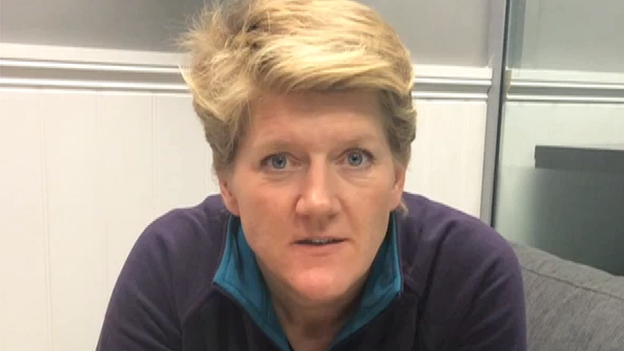Women's Sport Week: Tanni Grey-Thompson on the power of sport
- Published
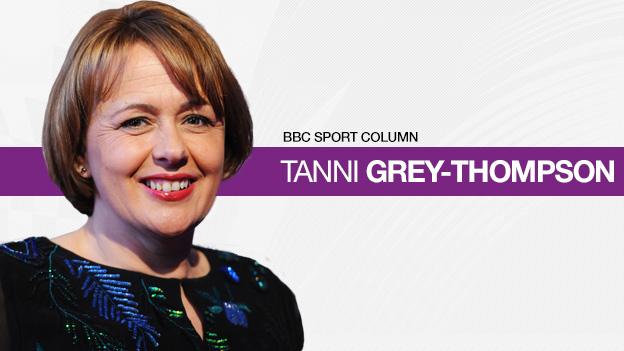
After winning 16 Paralympic medals, including 11 golds, and six London Marathon titles during her wheelchair racing career, Baroness Tanni Grey-Thompson has swapped the racing track for the House of Lords, where she now sits as a cross-bench peer. To launch Women's Sport Week, external, she talks about the power sport has to improve the lives of women right across the world.
Growing up in Wales, I was probably quite a shy child and sport gave me confidence and something to focus on. I really liked school but I also really loved that physical element of training.
I don't remember a point where I didn't want to be involved in sport. It was a really natural thing for me.
As a result, sport has given me everything that I have got now.
It is hard to know what would have happened if I hadn't been sporty. I might have been a lawyer - not sure if that is good or bad. I'm not sure if I would be involved in politics.
But one of the most important things for me is that sport has helped give me the public profile to have the platform to do other things I care about - it lets me talk about disability rights and how disabled people are treated.
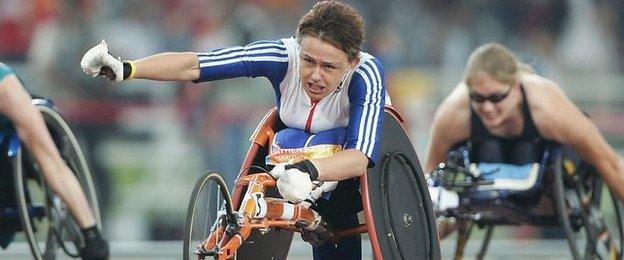
Grey-Thompson competed at four Paralympic Games between 1992 and 2004
Sport gave me confidence and helps teach you that if you work really, really hard and are prepared and know the rules of engagement, then you can take on anything and it makes you less afraid to try stuff.
That feeling of confidence and self-worth when you know you have gone out and done the best you could have done, whatever it brings you, is an amazing one.
You feel really good about yourself knowing you have pushed as hard as you could have done and it also makes you a bit greedy because you want to go and do it again and makes you work even harder.
You can see yourself getting fitter, quicker and stronger but you also then realise how far you can push yourself when it comes to other things. It is knowing how much you can push yourself, your body and your mind and how much your mind can overrule your body when things get hard.
Overall, it teaches you a lot of lessons about not giving up and fighting for what you want.
For me now, sport gives me time when I am on my own, no phone, no emails and it is a moment of the day when nothing can intrude on it and that is a really nice feeling.
Does strength matter in horse racing?
As a mum, you tend to feel guilty a lot and it is hard to balance everything and women need to give themselves permission to be a bit healthier.
Women often put other people's needs first and it can be hard when you are juggling everything to feel you have the time to say I'm going out for a walk or a swim or to an exercise class.
But women need to think about their long-term health and be more physically literate.
They need to find what they enjoy in sport so that even when you are in the middle of a session and feel like you are about to throw up and/or pass out and hate the fact you are there, there is still some part of it that you enjoy.
However, being active is not just about elite sport - it is about just doing stuff for fun. That could be things like going for a walk with your family in the park, a bike ride, a Zumba class, whatever and that is a worry because unless we start thinking of it in terms of health we have a problem.
The biggest thing that worries me at the moment is how few young girls are being active as a starting point to getting into sport.
There was a list published recently showing where Great Britain compared to the rest of Europe in terms of activity and we are very low in that list. Unless you have more people being active, you won't make that stepping stone into being sporty and possibly finding a way into elite sport.
While we are doing well in sport at elite level, the cost of us being an unhealthy nation will keep getting pushed away. People don't worry about it but being unhealthy is a massive problem.
What is Women's Sport Week? | |
|---|---|
Women's Sport Week is being held between 1-7 June and is an opportunity for everybody involved with playing, delivering, leading or working in sport to celebrate, raise awareness and increase the profile of women's sport across the UK |
If you have a generation of children in school growing up unhealthy then their children will be unhealthy and won't play sport. Two or three generations down the line we will have problems at that elite level as well as those health issues.
I've never met anyone yet who wants their daughter to be unhealthy when they are older. That might be how they end up but we need to break the cycle and change PE in schools and give more priority to that and get people thinking about what they do outside and make sure sport is for everyone.
In some countries I've visited - including Rwanda and Palestine - it's nothing to do with talent ID or elite sport, it is all about changing long-held traditions and customs where women were excluded from sport.
It's all about helping women be fitter, stronger and healthier so they feel stronger in themselves and in making their own decisions and earn their own money which is really important - no matter where you are in the world.
Baroness Tanni Grey-Thompson was speaking to BBC Sport's Elizabeth Hudson
- Published7 June 2015

- Published5 September 2016
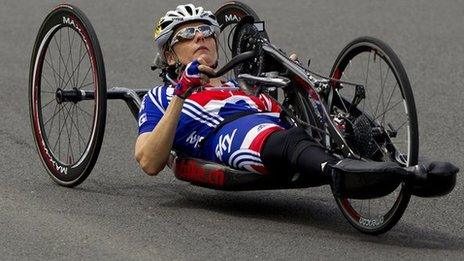
- Published3 October 2016
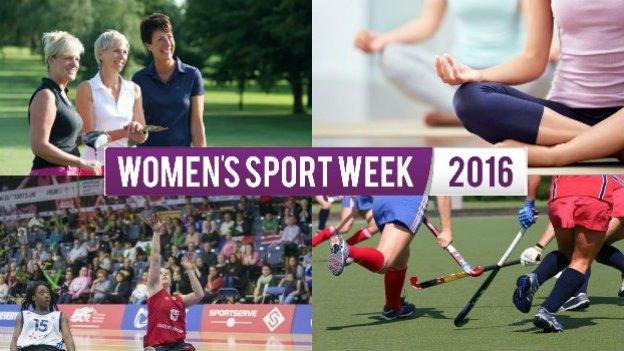
- Published6 June 2015
